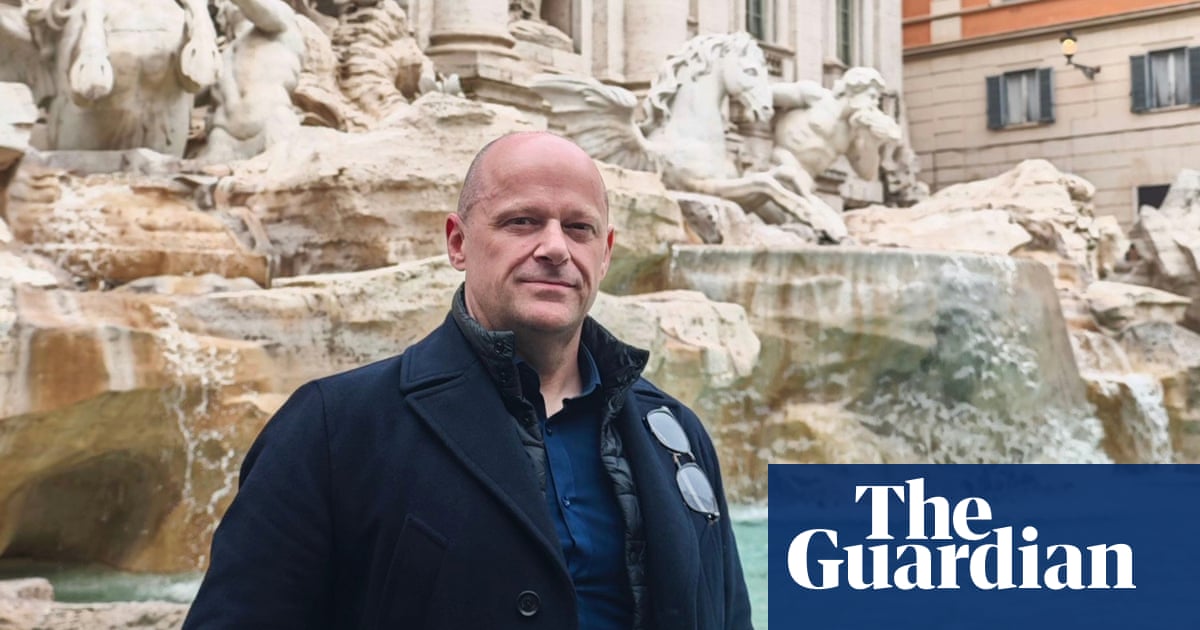There’s nothing funny about your co-worker being assassinated. But it was the death of my beloved colleague and friend Hisham al-Hashimi that led me into the world of standup comedy. I knew it would trash my hard-won career in international security, but I didn’t care any more.
Hisham had run a workshop with me in Iraq six months prior to his death, and I’d taken everything so seriously, marching around the hotel yelling about how everything was going wrong. But Hisham always had a lightness in his step, a smile on his face. Every evening, he’d take me to a café, order me my favourite shisha and proceed to tell the most disgusting jokes.
One morning, a group of tribal leaders we’d convened refused to check out of the hotel unless we paid them. I freaked out, called head office, read compliance regulations, tried jamming my own credit card into ATMs, while Hisham laughed until tears streamed down his face. “I warned you about the Anbaris,” he cackled. “They make love to money!” I could hardly conceive of a worse nightmare than this, but Hisham had lived the life of a real Iraqi. He’d witnessed Saddam’s crimes, the invasion, the civil war, then Islamic State. Hundreds of thousands of people killed every few years. And I was worried about an awkward end to my workshop, when Hisham had survived all that.
He was shot outside his home in July 2020, while his wife and young children were inside. He’d been receiving threats for months from militias who were angry about his journalism. But he refused to be cowed, wouldn’t stop telling the truth, gave up multiple opportunities to move abroad. Even with the pressure bearing down on him, he still found joy everywhere and was able to excavate the humour from the bleakest of situations. I partied in his honour the night after his death, a wake he would have adored, toasting him as I danced with my friends, crying the entire time. He would have been thrilled to see me finally let loose.
I’d been so uptight until that moment. I was a brown woman from a completely average home in the north of England, and forging a career in international security felt like a relentless fight. I studied insanely hard and wore my academic accolades like a suit of armour: Oxford, a PhD, Harvard. Still, I was constantly undermined and disrespected. At the age of just 28, I’d made it to a senior fellowship at a thinktank in Washington DC. Soon I was running my own projects on the ground in Iraq.
But there was another side to me, one that I kept hidden. I loved comedy. Popworld, presented by the hilarious Miquita Oliver and Simon Amstell, was appointment television for me when I was growing up. The first time I was dumped, I watched Monty Python’s Life of Brian, and laughed so hard I couldn’t summon a shred of sadness for my ex. I read Scoop by Evelyn Waugh, Lucky Jim by Kingsley Amis, Heartburn by Nora Ephron and wondered why anyone bothered writing if they couldn’t write humour. By the time I was working in Iraq, I was using every spare moment to watch standup. In passport control at Baghdad airport, I’d plug in my headphones and watch clips of Sara Pascoe, Sindhu Vee and Ali Wong, choking down my laughter as armed guards cast wary glances in my direction.
I vividly remember one trip to Iraq in 2018 when I was investigating a disputed election. A close Iraqi friend and former student of mine had been working in his political party’s offices when it had been shot at by an opposing party. I visited the offices, photographing bullet holes, my friend hyperventilating beside the shattered glass. When I returned to my hotel that night, scared and overwhelmed, I searched for comedy to watch. It had become my coping mechanism. I found videos of Michelle Wolf’s comedy routine at the White House Correspondent’s Dinner and fell in love with her, this whip-smart woman eviscerating the Trump administration while they were forced to watch. Though much of the comedy I’d enjoyed had been political, this was the most overt and it got me thinking about other ways I could make an impact with my life, perhaps one that integrated my love of comedy.
After Hisham’s death, I began to face up to the reality of how dangerous my work was in Iraq and I stopped dismissing my interest in comedy. In between trips to Iraq, I signed up for a standup course at the Bill Murray in London. It’s a comedy club I had an abiding affection for, a place where established comedians come to try out new material on small crowds and where I’d watched comedy geniuses like Kevin Bridges and Jessica Fostekew perform to groups of less than 100 people. I began spending Sunday afternoons at the beginners’ standup class where we were given prompts and asked to immediately perform jokes to one another. I absolutely loved it.
The first joke I told was about sleeping with someone from Tinder in Iraq and finding out, post-coital, that he was an IS fighter. It wasn’t true, but having worked in Iraq I could paint a very convincing picture. A choked, shocked laughter emerged from the class and I enjoyed the simultaneous sensations of mirth and discomfort I’d evoked. I realised that my unusual profession as a peacebuilding practitioner was a brilliant source of material, and I started searching for humour on my work trips to Iraq. And it was everywhere. The farcical Iraqi bureaucracy, the moronic expectations of Brussels-based donors, the absurdity of foreign efforts to build peace in a country we’d so recently destroyed. I’d fill the notes app on my phone with observations, then come back to London and perform them to my class.
I missed the end-of-course showcase event. A meeting with the Iraqi president won out and I sat in the presidential palace in Baghdad wistfully thinking about my classmates performing their tight-fives to a packed audience of family and friends.
There is an electricity to performing standup that is unlike any other feeling. When you make an audience laugh, your victory is so immediate, the thrill drenches you like an upturned bucket of dopamine and adrenaline. I can understand why standups find it addictive.
But it’s also nerve-racking. When a joke fails to land, the silence feels oppressive and humiliating. My knees would shake so hard sometimes I could feel them knocking together. Though my classmates protested that I always looked composed and confident, I slightly dreaded getting on stage. I’d known before I started that my comedy would find its ultimate outlet in a novel. My life had given me a big story to tell: from my devout Muslim upbringing to my search for meaning through aid work and then my efforts to build a programme to rehabilitate IS brides. I wanted to take my time with the story, to tell it in its richest and most nuanced form. More importantly, I wanted my jokes to land or fail without having to be in the room to witness it. But taking the standup course was crucial to my novel. It helped me write a tonne of properly funny, laugh-out-loud jokes and set-piece comic scenes that formed the backbone of my story.
I did worry, when writing the novel, that focusing so much on humour would make literary critics sneer, that it wouldn’t be considered a serious work. I forged ahead anyway; it would’ve been dishonest to write any other way and I was done with forcing myself to fit into a mould. The comedy turned out to be the novel’s secret weapon, with people from all ends of the political spectrum unexpectedly engaging with – and enjoying – a story about IS brides.
Since publication, my training as a standup has come into its own. As I sit in bookshops and libraries talking to audiences, I find myself performing a set, rather than boring everyone with talk of my writing process. It has been a lot of fun making an audience laugh again, though nervousness sometimes rears its head. Oddly, it’s the novel that has made some of my longest-held comedy dreams come true. My all-time favourite comedian, Sara Pascoe, interviewed me on her podcast and I was invited to speak on a Radio 4 Friday night comedy show.
But best of all, my Instagram DMs are filled with readers quoting jokes from the novel back to me, followed by strings of crying-face emojis. Perhaps this is my favourite way to be a comic. Safely behind my keyboard, enjoying the laughter of others, mediated through a screen.
Fundamentally by Nussaibah Younis is published by W&N at £16.99. Buy a copy for £15.29 at guardianbookshop.com

 2 days ago
14
2 days ago
14













































